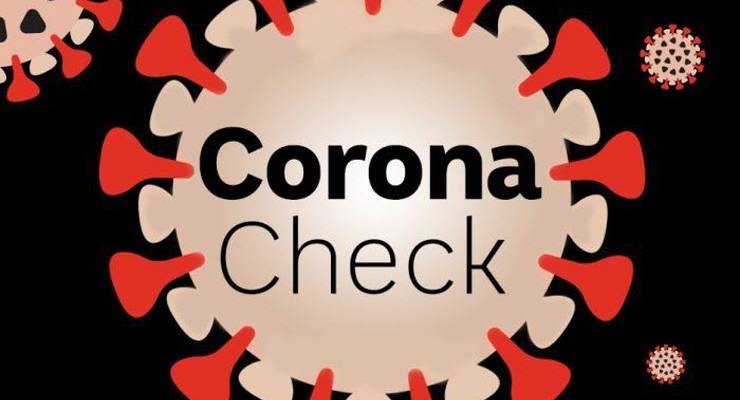
As the world grapples with an unprecedented health crisis, it is now more important than ever to ensure that the information we share is accurate and fact-based. Fake news and misinformation seem to be spreading as fast and as far as the virus itself, infecting our newsfeeds and timelines at this crucial moment.
This is why RMIT ABC Fact Check is launching CoronaCheck, an email newsletter in which we will bring you the latest in fact-checking from around the world in relation to the coronavirus.
Subscribe and keep reading for a taste of what’s to come.
CoronaCheck #1
Today we’ve looked at how misinformation is being shared and by whom — something which can be very hard to track once false information goes viral.
We’ve also got some bad news about those photos of wild animals in the canals of Venice, and we’ll bring you an update from the White House.
In addition, we’ve included a fact check — which we’re sure will be the first of many — debunking an “apparent” cure for the virus.
A Facebook post, shared more than 100,000 times, claims a factory in Footscray is hoarding grocery items to be sent overseas.
But Victoria Police have discredited the post. In a Facebook post of their own they said:
We are aware of a social media post being shared claiming a freight company was stockpiling food and sanitary items in a Footscray factory for overseas export. Police have spoken to the company and found these claims to be false.
While we know there is plenty of misinformation around about the coronavirus, as evidenced by this newsletter, it can be very hard to tell where a lot of it is coming from.
But in an op-ed for Wired, Gabby Deutch from online trust website NewsGuard writes that she and her colleagues were able to track one fake article — “Coronavirus Bioweapon–How China Stole Coronavirus From Canada And Weaponized It” — back to its source.
It’s a fascinating read, and a good example of how fake news goes viral and why it’s so hard to track.
Some of the misleading coronavirus news is also being shared by climate change deniers, according to Desmog, a website devoted to spreading accurate climate science.
A claim attributed to Stanford University that being able to hold your breath for ten seconds “proves there is no (COVID-19 caused) Fibrosis in the lungs” has been deemed false by a number of fact checkers, including Africa Check, AP, Full Fact and USA Today.
Before you try the “test” out at home, know that Stanford University has said the information did not come from them and as one expert put it:
Most young patients with coronavirus will be able to hold their breaths for much longer than 10 seconds. And many elderly without the virus won’t be able to do it.
In news that is a bit disheartening, those photos of dolphins and swans swimming in the canals of Venice are misleading, according to National Geographic and fact checkers at The Quint.
The photos of dolphins were actually taken in Sardinia, hundreds of kilometres away, and the swans were in Burano, in the greater Venice area, where they have been for 20 years.
White House update
In tragic news a man is dead and his wife is making a recovery in the US after they ingested a version of chloroquine, a substance Donald Trump falsely claimed had been approved to treat coronavirus.
President Trump claimed at a press conference on March 19 that the US would be making chloroquine, used to treat malaria, “available almost immediately” and that it had been approved by the Food and Drug Administration.
But according to AP Fact Check, CNN’s Facts First, and factcheck.org, the FDA is only investigating whether the drug can be used to treat COVID-19 and has not approved it as a treatment for the disease.
Those fact checks clearly didn’t reach one American couple, who ingested a parasite treatment for pet fish containing chloroquine phosphate after seeing Trump’s comments on TV.
A doctor at the clinic which treated the couple offered some good advice:
You need to listen to the scientists.







The Argentinean virologist Pablo Goldschmidt, who lives in France, considers the political reaction to Covid19 as „completely exaggerated“ and warns against „totalitarian measures“. In parts of France, the movement of people is already monitored by drones.